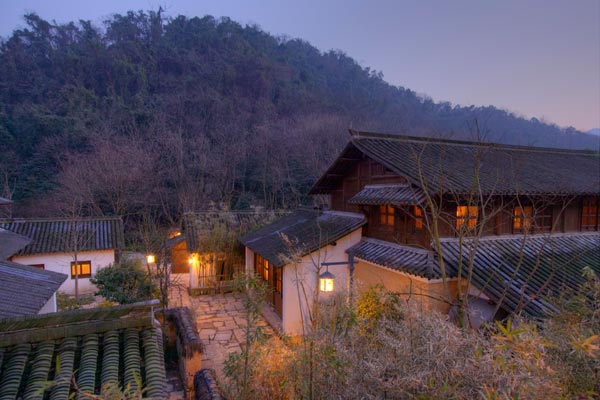
It's not just the attention to detail but also finding the right staff, say experts
"It is one of those destinations that instantly enthralls the visitor, especially in the early morning when sitting in the courtyard of a tea plantation house, hearing the monks greeting the day in nearby temples on top of the hills. Their mantras cover the valley like a warm duvet. On such a morning one can hear the country breathe in and out - very gently, very calmly."
That purple prose came from a review left at a boutique hotel in Hangzhou. Unlike the traditional standardized hotel, a boutique hotel - also known as a lifestyle hotel or designer hotel - contains luxury facilities of varying degrees in unique or intimate settings with the opportunity to explore the local atmosphere.
They have boomed in China's first-tier cities such as Beijing and Shanghai and blossomed in scenic destinations, attracting customers, including 22-year-old Ye Ying, who look for something special and different.
|
 |
|
The pathway that leads to Aman Spa, a major relaxing retreat at Amanfayun resort in Hangzhou. The concept of boutique hotels, mainly popular in the West, has now moved beyond the usual design capitals of the world and is entering new markets including the Chinese mainland. [Photo/China Daily] |
"The hotel pays attention to detail," the young woman said effervescently when talking about her experience with her boyfriend at a boutique resort close to the West Lake in Hangzhou last summer.
"Its dcor is very detailed - such as the balcony and curtains. The entire sense of taste is exquisite," she said. More importantly, the hotel creates a feeling of home and is close to nature, which differentiates it from branded hotels, she added.
Ye and others like her represent a new trend - a young group seeking properties that are noticeably different in look and feel from branded hotels - when planning trips.
As such, the concept of boutique hotels, mainly popular in North America and the UK, has now moved beyond the usual design capitals of the world and is entering new markets including China.
Hangzhou is one of China's most renowned and prosperous cities, famed for its natural beauty. Luxury brands including Amanresorts and local hoteliers have all staked their claims, establishing well-hidden facilities at remote lakeside spots or in the mountains.
In January 2010, Amanresorts launched Amanfayun, its 24th property worldwide and second in China, offering guests a unique rural retreat on the outskirts of the city.
Local providers of boutique hotels are also in on the trend. In one year, a local boutique resort brand called West Lake Reclusive Life expanded to nine outlets at scenic spots in Guangzhou. Another local group, Fulinlehui Resort, which opened last year at the city's Xixi National Wetland Park, is planning to create more rooms.
The hotel is designed to provide travelers with a home from home to relax in, said He Jin, Fulinlehui's owner. "I am an outdoor hiking fan and was inspired by boutique hotels in Southeast Asia," he added.
Boutique hotels took off in China at a time when high-ranking branded hotels began to expand frenziedly despite a stagnant occupancy rate.
Official figures show that the number of five-star hotels stood at 651 in China at the beginning of this year, with 500 more scheduled to open.
According to Shenzhen-based consulting firm Hotelsolution, the occupancy rate at high-ranking star hotels was a little more than 60 percent for the last quarter of 2011. A hotel barely breaks even if the rate is lower than 60 percent.